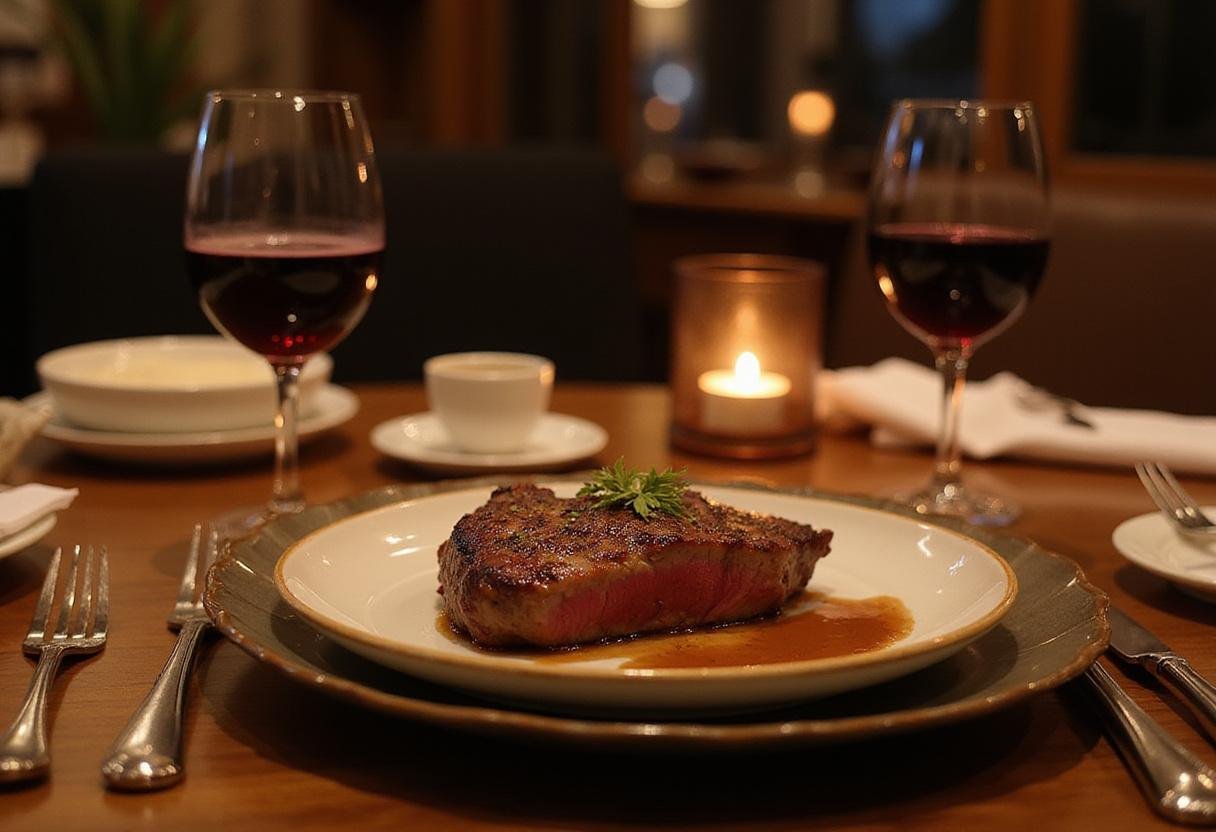Wagyu Beef Health Aspects: Exploring the Nutritious Benefits of Gourmet Indulgence 🥩✨🌱
1. Introduction
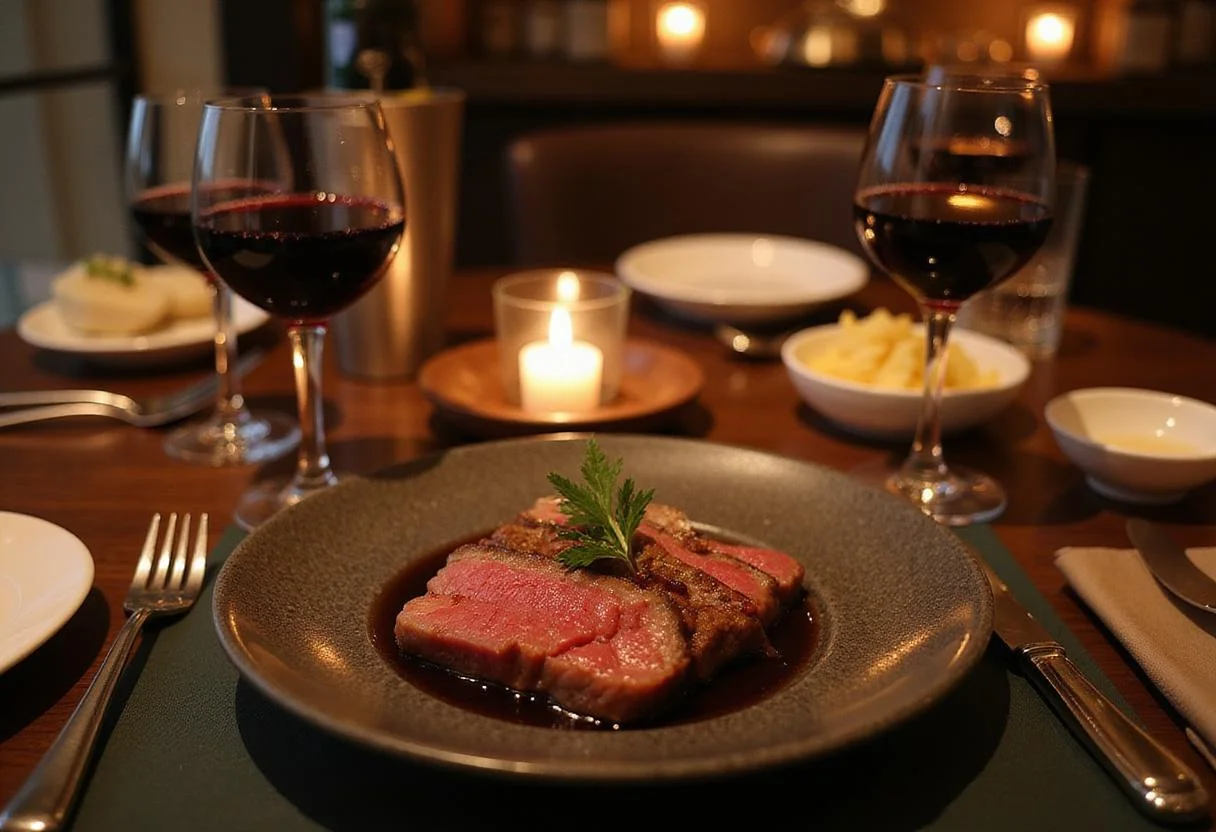
Wagyu beef, celebrated globally for its unparalleled flavor, melt-in-your-mouth tenderness, and exquisite marbling, has also garnered significant attention for its potential health benefits. Many food enthusiasts and health-conscious individuals often ponder the pivotal question: is Wagyu beef healthy? In this comprehensive article, we will delve deep into the nutritious aspects of Wagyu beef, meticulously examining its unique fatty acid profile, essential vitamins, beneficial minerals, and other health advantages. We will also provide a detailed, step-by-step guide on how to prepare Wagyu beef to maximize its health benefits and culinary appeal. Let’s embark on an exploratory journey into the world of Wagyu beef and uncover its exquisite yet wholesome charm, discovering how this gourmet indulgence can fit into a balanced diet.
2. Understanding Wagyu Beef
Wagyu beef originates from Japan, with “Wagyu” simply meaning “Japanese cow.” This premium beef is renowned worldwide for its exceptionally high degree of intramuscular fat, or marbling, which directly influences its distinctive flavor and supremely tender texture. This marbling is not merely for aesthetic appeal; it is predominantly packed with monounsaturated fats, considered the “healthy” fats, that are beneficial for heart health when consumed in moderation. Moreover, the presence of omega-3 and omega-6 fatty acids in Wagyu beef contributes to reducing cholesterol levels and promoting overall cardiovascular well-being. To comprehend the true essence of Wagyu, it’s essential to appreciate the meticulous breeding and feeding practices that contribute to its unique composition and health profile. If you’re looking to explore similar culinary adventures, why not try our Giant Dinosaur Beef Ribs Feast for another exceptional beef experience?
3. Nutritional Benefits of Wagyu Beef
When asking is Wagyu beef healthy, it’s essential to focus intently on its detailed nutritional composition and how it compares to other types of beef. Wagyu beef tends to be remarkably rich in essential nutrients that are vital for maintaining optimal health. It contains high-quality proteins, comprising all the essential amino acids necessary for muscle growth, repair, and overall body function, making it an excellent dietary choice for athletes and individuals focused on maintaining a healthy physique. Furthermore, it is a significant source of vital minerals like iron, crucial for oxygen transport in the blood, and zinc, which plays a pivotal role in supporting immune function, promoting wound healing, and maintaining healthy energy levels. The presence of B vitamins in Wagyu also contributes to nerve function and energy metabolism. Don’t forget to also explore the health benefits of our Sweet Potato Cracker Snack for a healthy side!
4. Preparing Wagyu Beef
Step 1: Selecting Your Wagyu Beef
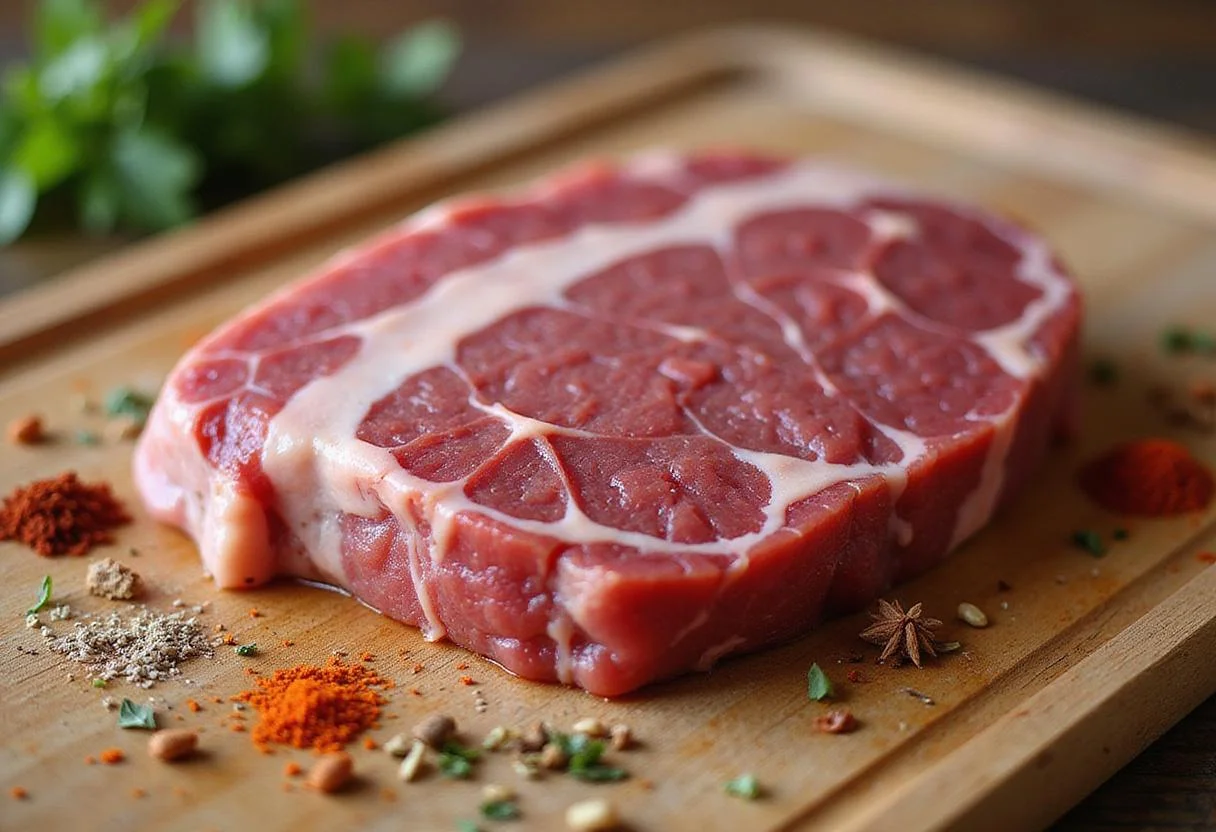
Choosing high-quality Wagyu beef is undeniably the first and most critical step towards a healthy and delightful culinary indulgence. Look meticulously for cuts that exhibit a rich, intricate marbling pattern, resembling fine networks of fat dispersed evenly throughout the muscle tissue, as this is a key indicator of superior quality, enhanced flavor, and exceptional tenderness. Consider sourcing your beef from reputable suppliers who not only guarantee the authenticity of their Wagyu but also prioritize ethical and sustainable farming practices, ensuring both the welfare of the animals and the quality standards of the meat. You can find excellent options at reputable butchers or online retailers. Check out Holy Wagyu Meats for high-quality Wagyu beef.
Step 2: Seasoning the Beef
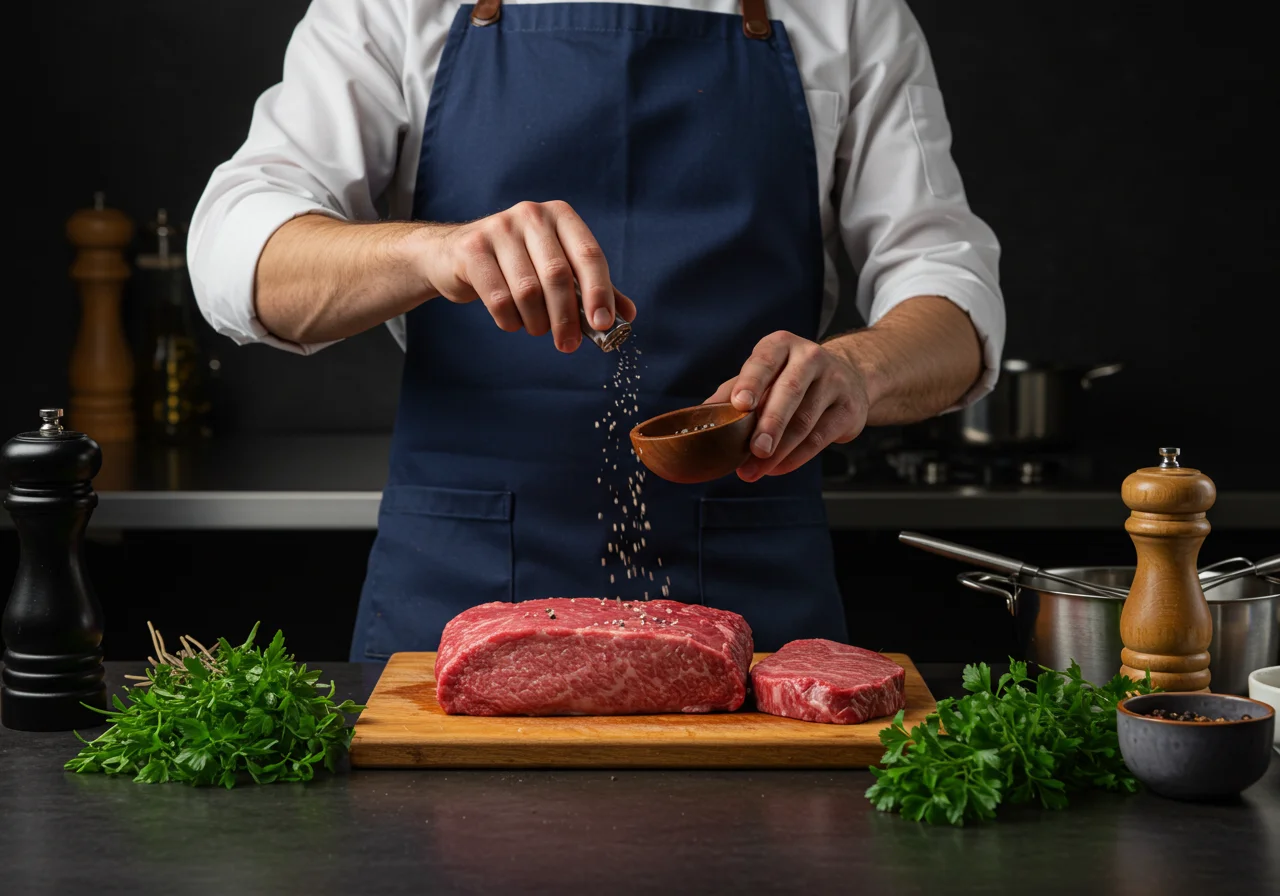
When seasoning Wagyu beef, the principle of “less is more” truly applies. Simple seasoning is absolutely key to enhancing, rather than overpowering, the natural and exquisite flavors of the beef. Use high-quality sea salt, preferably coarse or flaky, and freshly cracked black pepper to delicately bring out the inherent flavors of the Wagyu beef without masking its delicate nuances. Avoid using excessive spices or marinades that could potentially detract from the beef’s unique taste profile. These basic, high-quality ingredients, coupled with the beef’s inherent qualities, will significantly enhance the dish’s health aspects while simultaneously ensuring a gourmet touch and a truly unforgettable culinary experience. For another simple yet flavorful dish, try our Zesty Tangy Chili Lime Treat.
Step 3: Cooking to Perfection
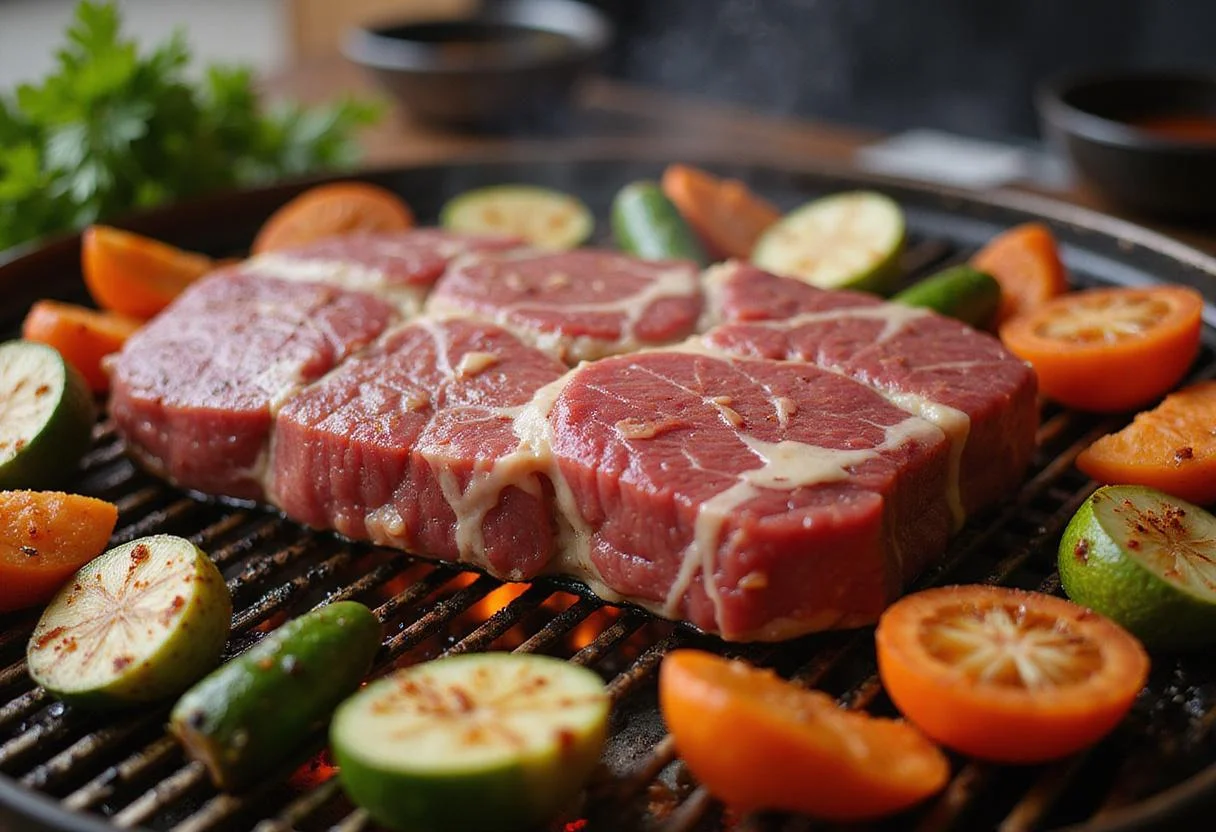
To cook Wagyu beef to absolute perfection and retain its optimal health benefits, grilling the beef on high heat for a relatively short period is highly recommended to achieve that coveted perfect sear while simultaneously maintaining its succulent juiciness. Alternatively, pan-searing in a high-quality cast-iron skillet can also produce equally desirable results. Pair the perfectly cooked Wagyu with a vibrant selection of colorful, non-starchy vegetables, such as grilled asparagus, bell peppers, and zucchini, to create a well-rounded, nutritious meal that particularly emphasizes the health aspects of Wagyu beef, delivering a harmonious balance of both extraordinary taste and essential nutrition. If you’re a pizza enthusiast, explore how different toppings impact the overall nutritional value, much like the sides you choose for Wagyu; check out our BC St Ignace Pizza.
Step 4: Plating Your Gourmet Meal
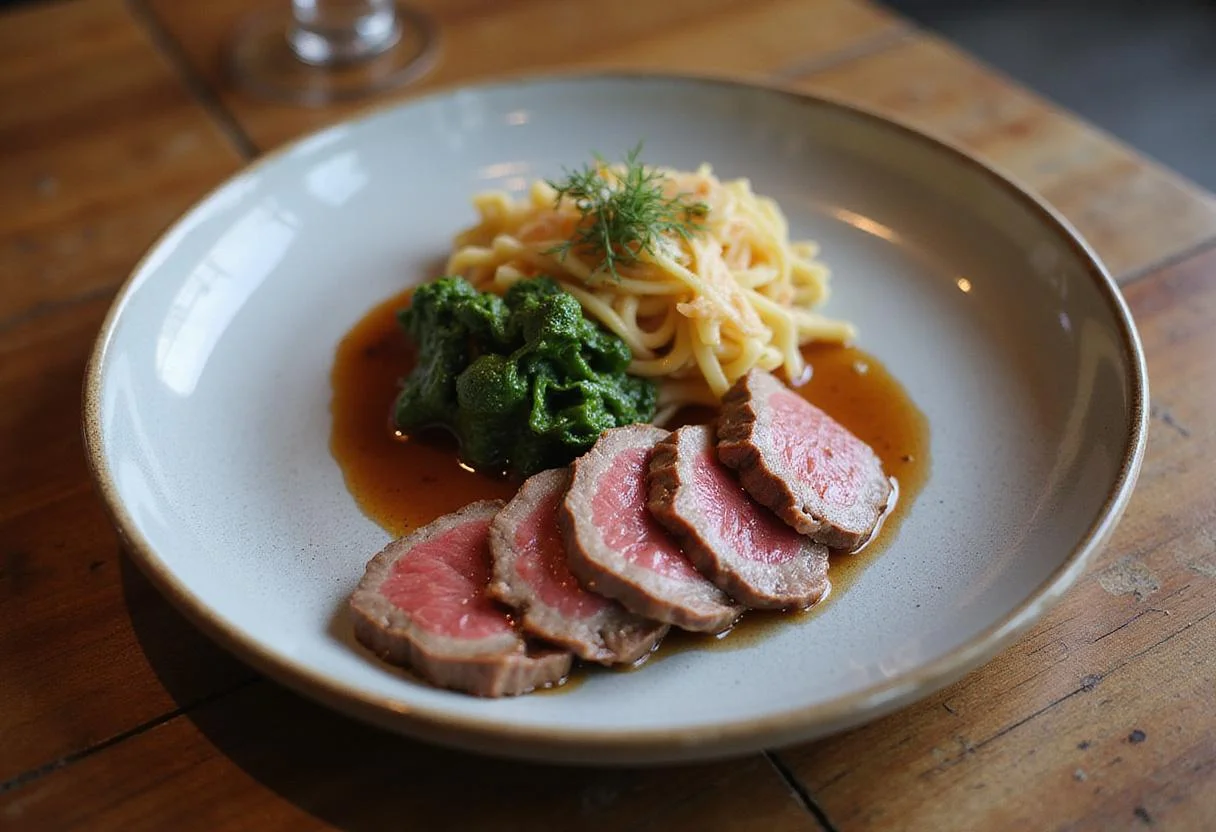
Finally, plate the Wagyu beef in an aesthetically pleasing manner, combining it artfully with the selection of grilled vegetables for added nutrition, visual appeal, and overall balance. A well-presented dish not only elevates the overall dining experience but also subtly highlights the luxurious nature of Wagyu beef while tacitly reinforcing its health advantages. Consider adding a small portion of whole grains, such as quinoa or brown rice, for added fiber and sustained energy. Remember, thoughtful presentation enhances the perception and enjoyment of the meal. For more dinner ideas, see our Dinner Recipes Section.
5. Storage Tips for Wagyu Beef
If you happen to have leftover Wagyu beef, which is a rare occurrence given its delectable taste, it is critically important to store it properly to maintain its unparalleled quality and prevent spoilage. Wrap the leftover Wagyu tightly in several layers of plastic wrap or aluminum foil, ensuring that all surfaces are completely covered to prevent air exposure and freezer burn. Refrigerate the wrapped beef immediately for up to 3 days to ensure optimal freshness and safety. For longer storage, consider freezing the beef; when properly wrapped, it can last for several months in the freezer without significantly losing its rich flavors, delicate texture, and valuable nutritional benefits. Always thaw frozen Wagyu beef slowly in the refrigerator overnight to preserve its quality and prevent the growth of harmful bacteria.
6. Serving Suggestions
Wagyu beef, with its rich and nuanced flavor profile, pairs exceptionally well with a wide variety of complementary sides, allowing for endless culinary creativity and customization. Consider serving it with creamy garlic mashed potatoes, which provide a comforting and classic accompaniment, or grilled asparagus spears, which offer a crisp, fresh contrast and added nutritional value. Alternatively, a vibrant and refreshing fresh garden salad, tossed with a light vinaigrette dressing, can provide a perfect counterpoint to the richness of the beef. Adding a delicate and flavorful light sauce, such as a red wine reduction or a balsamic glaze, can further enhance the overall dish without compromising its inherent health aspects. Experiment with different sides and sauces to discover your favorite Wagyu beef pairings and create a truly memorable dining experience. And for a side that is both healthy and delicious, try our Nutritious Hawaiian Roll Delights.
7. FAQs about Wagyu Beef
Is Wagyu beef healthy?
Yes, Wagyu beef is widely considered a healthy option due to its unique fatty acid profile, characterized by a high proportion of monounsaturated fats and beneficial omega-3 and omega-6 fatty acids. It also boasts a high protein content, essential for muscle health, and is a good source of essential nutrients such as iron and zinc, vital for overall health and well-being. However, like all rich foods, moderation is key to enjoying its benefits without exceeding your daily caloric and fat intake. Consuming Wagyu as part of a balanced diet and active lifestyle can contribute to a healthy and enjoyable culinary experience. For more information on healthy eating, visit our Recipes page.
How should I cook Wagyu beef for optimal health benefits?
To optimize the health benefits and flavor of Wagyu beef, cooking it at high temperatures for a relatively short period is generally recommended. This method helps to preserve its natural tenderness, juiciness, and valuable health benefits while minimizing the loss of essential nutrients. Grilling over an open flame or pan-searing in a hot skillet are particularly well-suited cooking methods for Wagyu beef. Avoid overcooking, as this can render the beef tough and diminish its overall quality. Using a meat thermometer to ensure that the beef reaches the desired internal temperature is highly advisable. Also consider exploring our Beef tag: Beef Tag.
Can Wagyu beef help with heart health?
Yes, due to its relatively high levels of monounsaturated fats, which are considered “healthy” fats, and its beneficial omega fatty acids, Wagyu beef can potentially contribute to heart health when consumed in moderation as part of a balanced diet. These healthy fats can help to lower LDL (bad) cholesterol levels and raise HDL (good) cholesterol levels, thereby reducing the risk of heart disease. However, it is important to remember that Wagyu beef is still a rich source of fat, so moderation is essential to reaping its potential heart-health benefits.
8. Conclusion
In conclusion, the frequently asked question of is Wagyu beef healthy can be confidently and positively answered, provided it is consumed mindfully, in moderation, and as part of a well-balanced diet. Its captivating unique flavor profile, exceptional tenderness, and impressive array of potential health benefits collectively make Wagyu beef a gourmet indulgence that is well worth exploring and savoring. Embrace the opportunity to prepare and serve this luxurious and delectable meat as a conscious part of your balanced diet, and revel in the truly opulent and satisfying culinary experience that it offers!
9. Final Thoughts
Whether you’re a seasoned professional chef or an enthusiastic culinary beginner, Wagyu beef offers an unparalleled and exquisite dining experience that is complemented by its commendable health aspects. Embark on a culinary adventure, dive into the fascinating world of Wagyu, and embrace the delightful balance of luxury, flavor, and nutrition in your everyday meals. By carefully selecting, preparing, and savoring Wagyu beef, you can unlock a world of culinary possibilities and elevate your dining experiences to new heights of satisfaction and well-being! And for another healthy option, try our Moist Delicious Zucchini Bread.
Print
Wagyu Beef Health Aspects?
Explore the nutritious benefits of Wagyu beef, a gourmet indulgence known for its unparalleled flavor and health advantages.
- Total Time: 25 minutes
- Yield: 2 servings
Ingredients
- High-quality Wagyu beef
- Sea salt
- Freshly cracked black pepper
- Colorful vegetables (e.g., asparagus, bell peppers)
- Garlic (for mashed potatoes)
- Red wine (for sauce)
Instructions
- Select high-quality Wagyu beef with rich marbling.
- Season the beef with sea salt and black pepper.
- Grill the beef on high heat for a short period for perfect sear.
- Plate the beef with grilled vegetables for added nutrition.
Notes
- Store leftover Wagyu beef properly in plastic wrap or aluminum foil for up to 3 days in the fridge.
- For longer storage, freeze the beef to maintain its flavor.
- Wagyu beef pairs well with sides like garlic mashed potatoes and fresh salads.
- Prep Time: 10 minutes
- Cook Time: 15 minutes
- Category: Main Course
- Method: Grilling
- Cuisine: Japanese
- Diet: Carnivore
Nutrition
- Serving Size: 150g
- Calories: 350 Kcal
- Sugar: 0g
- Sodium: 80mg
- Fat: 30g
- Saturated Fat: 12g
- Unsaturated Fat: 18g
- Trans Fat: 0g
- Carbohydrates: 0g
- Fiber: 0g
- Protein: 25g
- Cholesterol: 90mg

